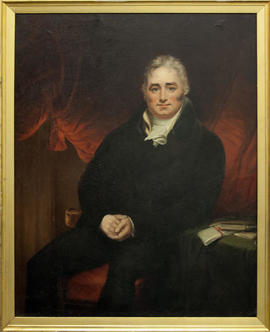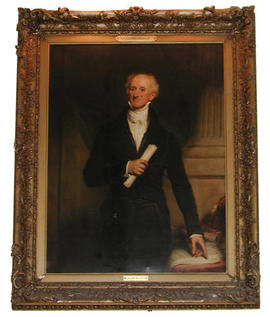Finch, Daniel, Earl of Nottingham, 1647-1730
- GB-2014-WSA-01073
- Person
- 1647-1730
FINCH, DANIEL, 6TH EARL OF WINCHILSEA AND 2ND EARL OF NOTTINGHAM, eldest son of Heneage Finch, 1st Earl of Nottingham (qv); b. 2 Jul 1647; adm.; a boarder of Busby’s for over three years (Busby’s Account Book); adm. Inner Temple 28 Jan 1657/8; Christ Church, Oxford, matr. 26 Jul 1662; MP Great Bedwyn Feb 1672/3 - Jan 1678/9, Lichfield Aug 1679-81 (check); a Lord of the Admiralty 14 May 1679 - Feb 1680/1; Privy Councillor 4 Feb 1679/80; First Lord of the Admiralty 19 Feb 1680/1 - May 1684; succ. father as 2nd Earl of Nottingham 18 Dec 1682; one of the last to accept the Revolution settlement of 1688-9, although he always kept aloof from the Jacobites; Secretary of State 19 Feb 1688/9 - Nov 1693; carried the Toleration Act, but failed to get his Comprehension Bill passed; again Secretary of State 15 May 1702 - May 1704, when he resigned on the Whigs becoming predominant in the ministry; an active head of the High Church party during the rest of the reign of Queen Anne; carried act forbidding the occasional conformity of dissenters, and opposed preliminaries of peace with France 1711; a leading “Hanoverian Tory” in the years before and immediately after the accession of George I; Lord President of the Council 22 Sep 1714 - Feb 1715/6, when dismissed for advocating leniency to the Jacobite peers then under sentence of death; succ. his second cousin as 6th Earl of Winchilsea 9 Sep 1729; FRS 26 Nov 1668; one of the original trustees of Busby’s will; author, The Answer of the Earl of Nottingham to Mr Whiston’s Letter to him concerning the Eternity of the Son of God, 1721; m. 1st, 16 Jun 1674 Lady Essex Rich, second dau. of Robert Rich, 3rd Earl of Warwick; m. 2nd, 29 Dec 1685 Hon. Anne Hatton, third dau. of Christopher Hatton, 1st Viscount Hatton; d. 1 Jan 1729/30. DNB.


